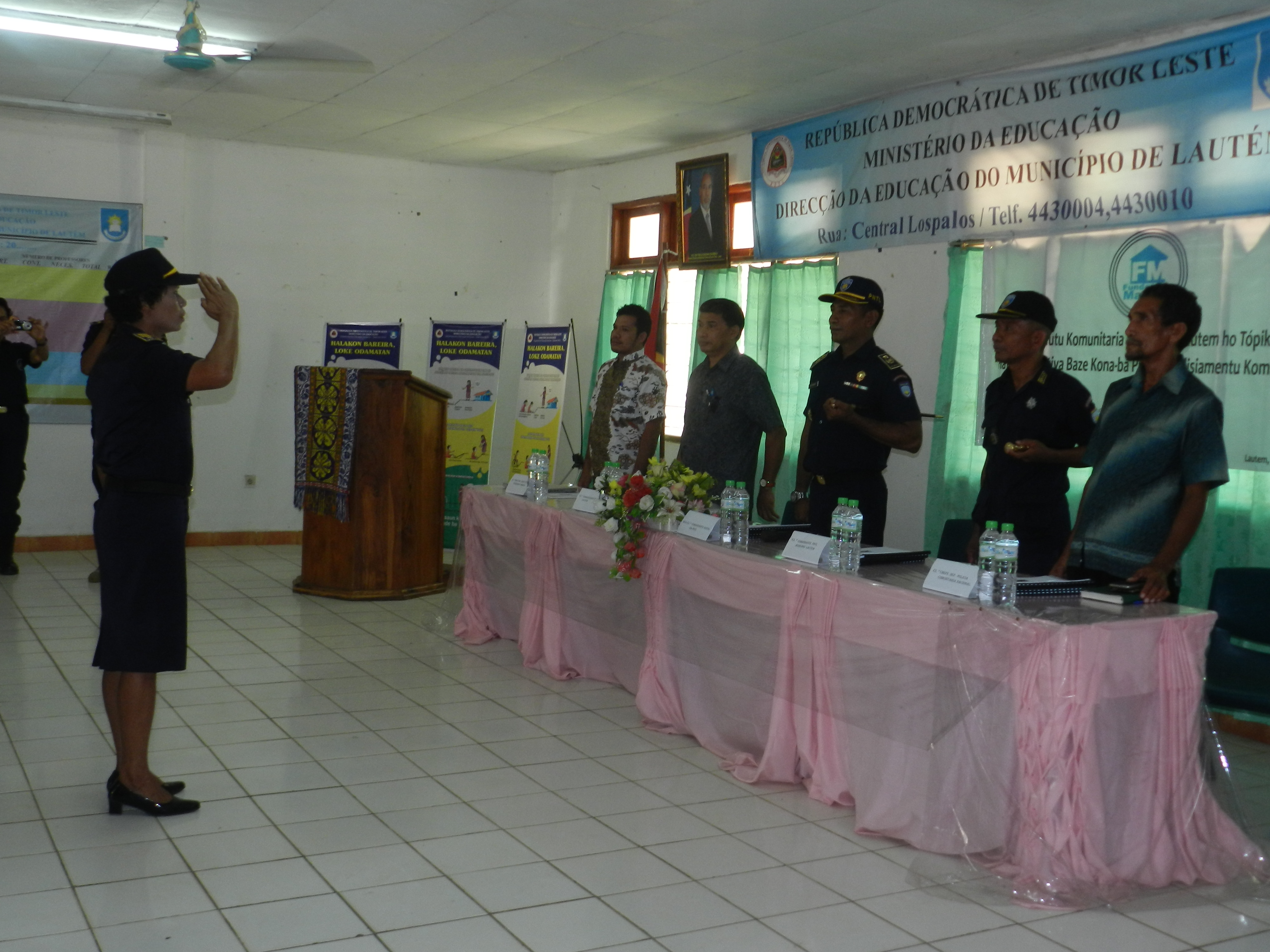In the year 2000, Timor-Leste’s first law enforcement institution was known as the Timor-Leste Police Service (TLPS), and was under the authority of the United Nations Transitional Administration in East Timor (UNTAET). In 2002, Timor-Leste’s I Constitutional Government took over executive authority for the state of Timor-Leste, and renamed the TLPS as the National Police of Timor-Leste (PNTL).
The new Government approved the PNTL Organic Law in 2004, which aimed to regulate the institutional functions of the PNTL and its member’s performance. In the space of just 2 years, the PNTL faced an institutional crisis during the 2006 political crisis, literally collapsing during a cycle of violence involving elements of the Defence Force of Timor-Leste (F-FDTL), PNTL and civilians. Despite this, still functioning elements of the PNTL continued to play a role in providing for law and order, alongside international police and military forces deployed under United Nations mandate as the International Security Force (ISF) to assist in re-establishing security. UN forces remained in Timor-Leste until 2012, after which responsibility for internal security was again transferred to the PNTL.
The first revision of the PNTL Organic Law of 2004 came with Decree Law No.9, 2009. This revision was significant in that it clarified structure and hierarchy within the PNTL, defining the roles and responsibilities of every unit, department and division within the PNTL. It also marked a shift towards the development of community policing as the defining strategy and philosophy of the PNTL. After 14 years, the Government and the PNTL approved the PNTL Strategic Plan 2014-2018, which defined the development strategy of the PNTL, in terms of both reform and institutional development, and how to consolidate public order through Community policing. The community policing model is based on the three pillars of Visibility, involvement and professionalism (VIP). This involves policy visibility in and engagement with communities in a professional manner, towards creative and collaborative problem-solving of community security issues. The objective of this to improve relationships between communities and the police, and build community confidence in the PNTL’s ability to address local security issues. Community policing is also a philosophy the PNTL is mainstreaming as an institution, and refers not to any particular unit, but to the PNTL as a whole.
Implementation of the PNTL Strategic Plan 2014-2018 has progressed significantly at the national level. Community Police Officers (OPS) are now deployed in 442 villages across Timor-Leste’s 13 districts. Additionally, local security resources have been mobilized to assist in OPS in providing security, which has also increased community involvement in local security provision. This has seen the establishment of Municipal Security Council’s in 11 municipalities, and Community Police Council’s and Suco Security Volunteers (SVS) in 11 municipalities as well, established in 10 villages within each municipality. This has helped local communities to establish a sense of local ownership over their security, provided an increased sense of security and reduced levels of conflict and crime.
At the national level, there is less concern over the PNTL’s operational capacity to provide for law and order for communities, as it successfully demonstrated its ability to do so during two important elections in 2016 and 2017. 2016 saw the PNTL provide security for the successful suco elections, where candidates were able to safely campaign for local level elections. In 2017, the PNTL has just recently demonstrated its capacity to provide security for communities across Timor-Leste during the 2017 Presidential Election, despite public concerns preceding the elections that it may have been unable to do so. The Presidential election saw no major security incidents or disturbances to the peace. This is due to an increase in the professionalism and capacity of the PNTL, which ensure a safe and successful election and the election of a new President of the Republic.
In 2015, the PNTL assumed the position of Chair for the Comunidade dos Paises da Lingua Português (CPLP), inclusive of the states of Angola, Brazil, Cavo-Verde, Guiné-Bissau, Guiné Equitorial, Mozambique, São Tome e Príncipe, Portugal and Timor-Leste, with police from these states conducting training and exchanges together, under the leadership of the PNTL in 2015.
In 2016, the PNTL organized a course for police sergeants, with participants not only from the PNTL, but police officers from CPLP countries such as São Tome e Príncipe, Cabo-Verde, Guiné-Bissau and Guiné Equitorial. The CPLP countries supported Timor-Leste’s 24 year long struggle for independence, and have continued to do for its 17 years of independence. The PNTL has helped to strengthen this relationship through training police from CPLP countries, and participating in UN Police Missions., as well as participation in regional dialogues and meetings concerning law enforcement.
Whilst the PNTL has made significant progress over these 17 years, the PNTL still requires the support of the Government, in terms of policy, legislation, and infrastructure development to allow the PNTL to solidify the gains it has already made as an institution.
Although the PNTL still faces public criticism, this is important as it helps to identify gaps and challenges for institutional development, and reveals that the public still has a role in developing a nationally responsive and effective PNTL. It is also for useful PNTL leaders responsible for making policy and operational level decisions, as these decisions are now influenced by informed debate and participation from the very public that the PNTL is responsible for protecting. During its 17 years of service, the PNTL has continued to learn and improve its capabilities, whilst demonstrating greater levels of professionalism.
Congratulations PNTL!





